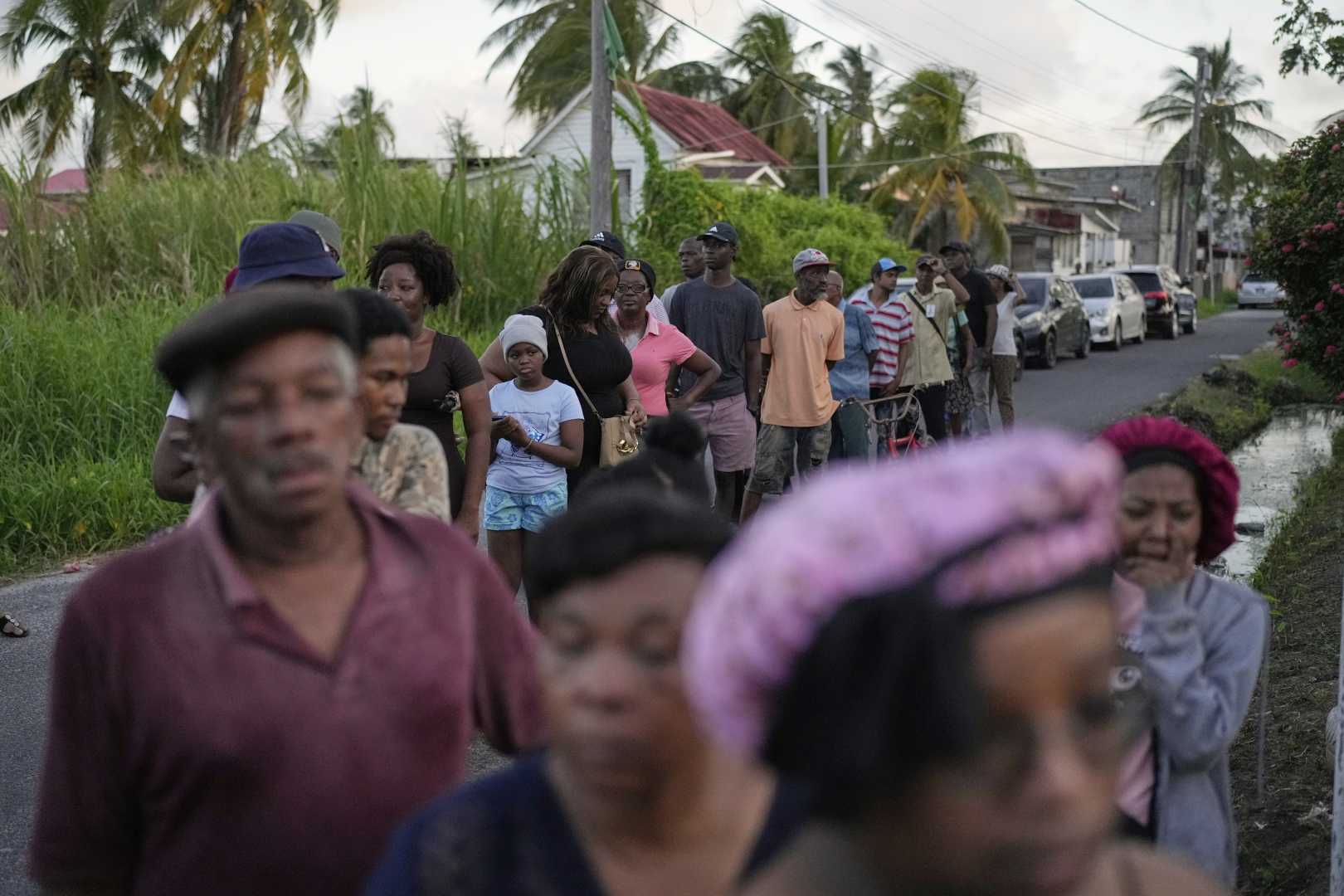News
Guyana Elections Might Shift Oil Geopolitics Amid Venezuelan Tensions

GEORGETOWN, Guyana — Guyana, the third smallest country in South America, is holding elections on Monday that could significantly impact its oil-rich economy and geopolitical landscape. The current president, Irfaan Ali, is vying for reelection amid rising tensions with neighboring Venezuela, which claims part of Guyana’s oil-rich territory.
Guyana’s oil production is on the rise, with projections suggesting it could surpass Iran’s output by 2027. Analysts predict that by 2035, the country will produce around 2 million barrels per day—equivalent to the combined output of Colombia, Ecuador, Peru, Trinidad and Tobago, and Venezuela in 2022.
In addition to Ali, the main contenders for the presidency include Aubrey Norton of the opposition People’s National Congress Reform and Azurddin Mohamed from the newly formed We Invest in the Nation party. Mohamed was sanctioned by the U.S. in 2024 over allegations related to the exploitation of Guyana’s gold sector.
Guyana’s economic transformation began in 2015 after ExxonMobil discovered nearly 11 billion barrels of oil offshore. The country, which has struggled with high poverty rates, experienced a GDP growth of 63.3% in 2022, and 43.6% in 2024, driven by crude oil exports.
Ryan Berg, director of the Americas Program at the Center for Strategic and International Studies, noted that how Guyana manages this newfound wealth will be crucial. “Guyana’s current growth rate is truly impressive,” he said, emphasizing the need for inclusive growth.
The elections come at a sensitive time, with rising tensions with Venezuela over the Essequibo region—a disputed area rich in resources. Venezuelan claims have intensified, with recent legal actions taken to assert sovereignty over the territory.
In 2024, Venezuelan lawmakers formally declared the creation of the State of Guayana Esequiba, further complicating the territorial dispute. The Guyanese government has labeled these claims an existential threat, prompting closer ties with the U.S., including joint military exercises.
Additionally, the rivalry between the U.S. and China plays out in Guyana, where American companies dominate oil production while China invests in infrastructure projects. Experts suggest Guyana’s ability to sustain oil production could keep it central to U.S.-China competition.
Political analysts see the elections as potentially stabilizing for Guyana. Imdat Oner of Florida International University stated that peaceful elections could prove that the nation’s new oil wealth does not have to undermine democratic processes as it did in Venezuela.
“These elections are crucial,” Oner added, stressing the importance of institutional strength in navigating the booming energy sector.
The outcome of the elections could not only shape Guyana’s domestic policies but could also influence the broader geopolitical landscape as both the U.S. and Venezuela watch closely.












